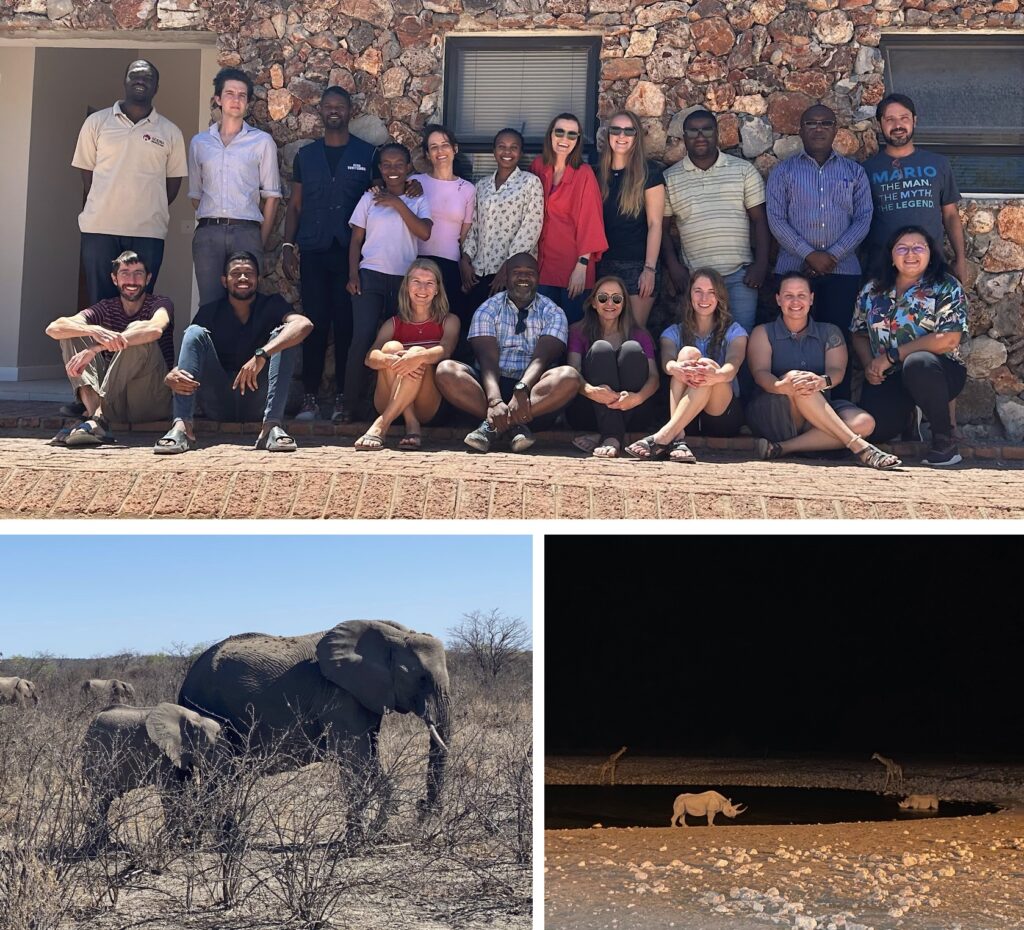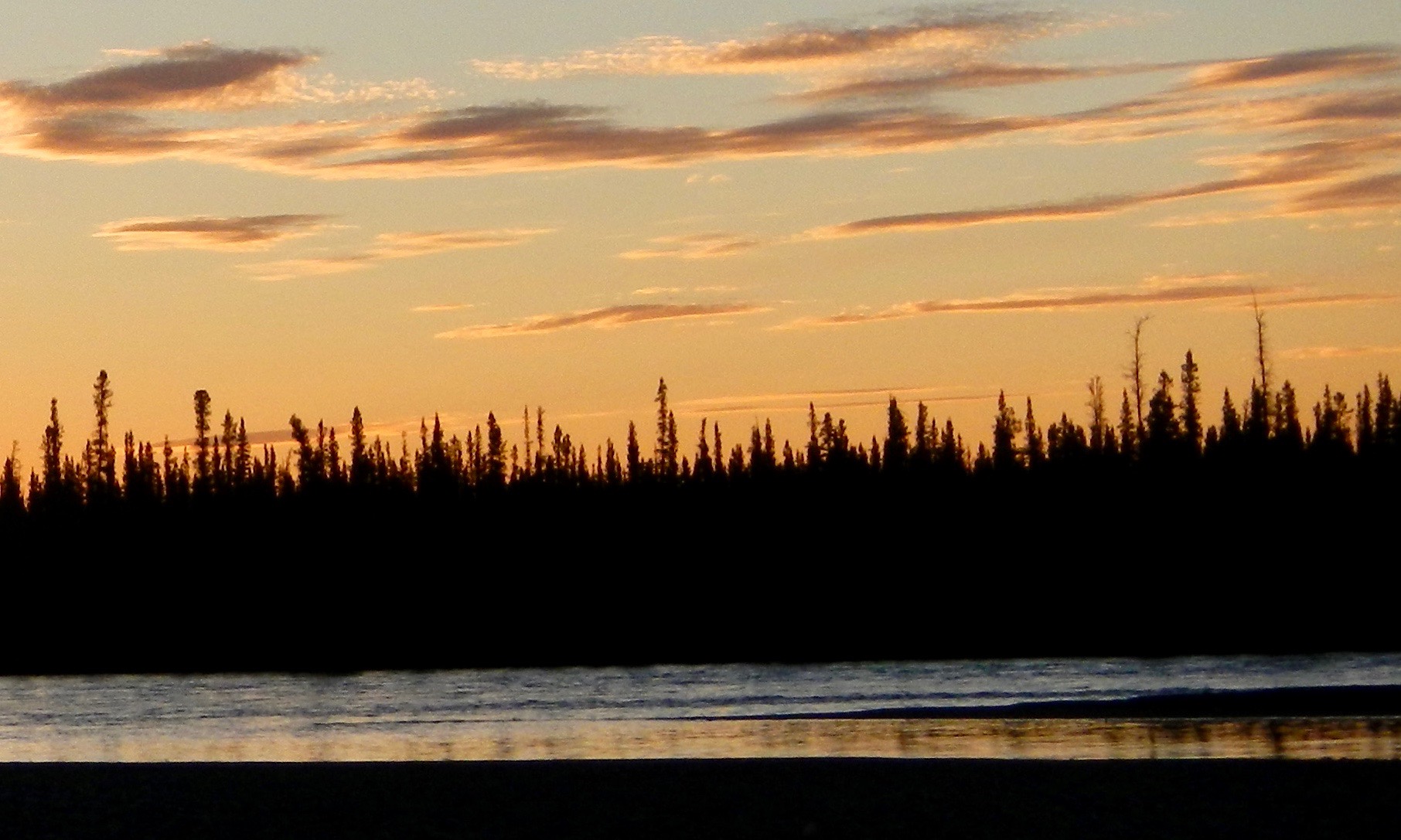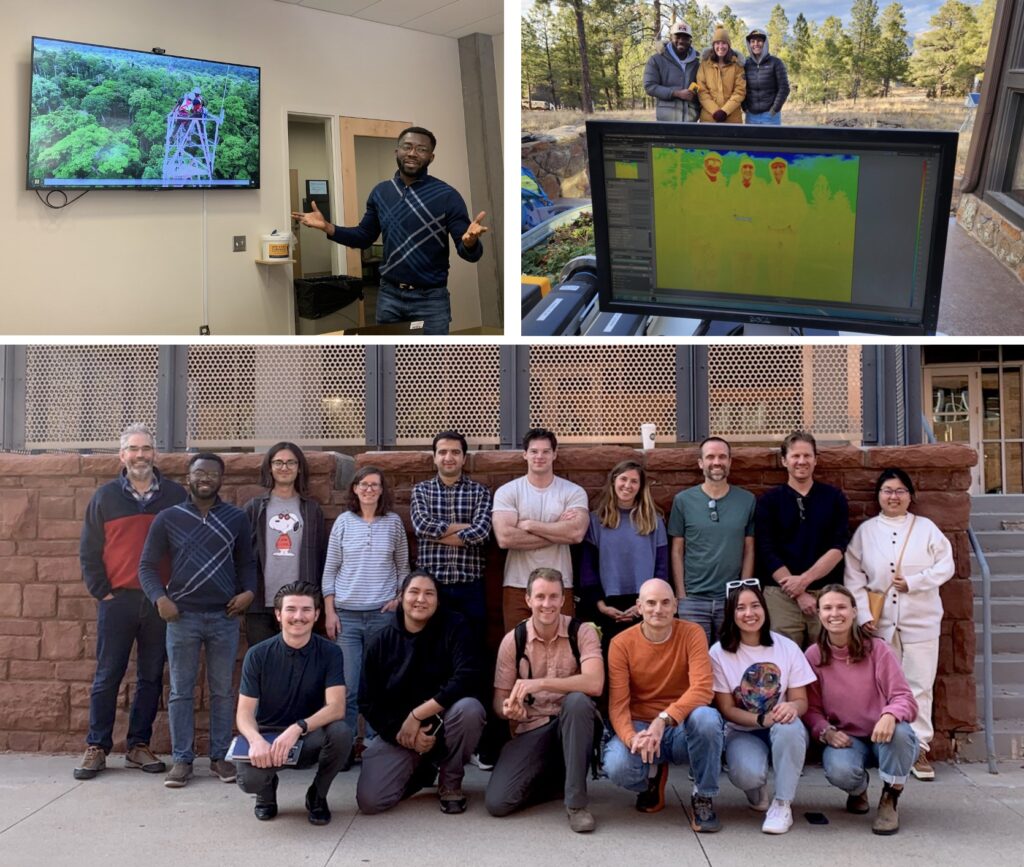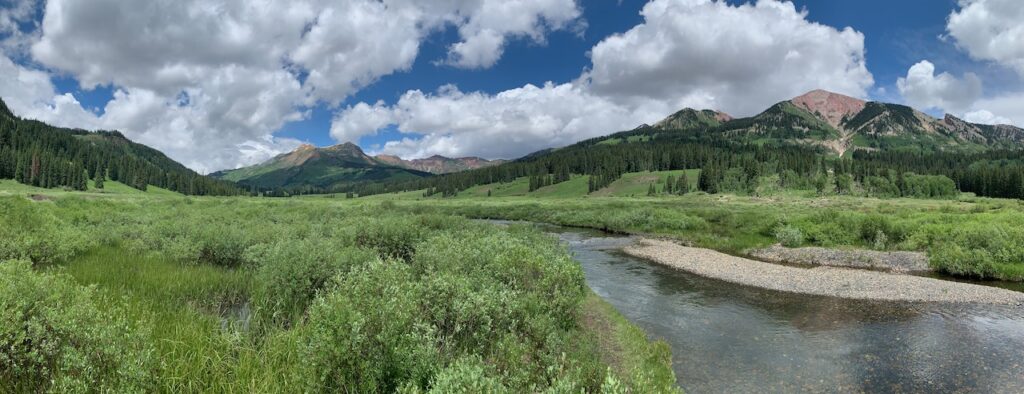Natasha had the opportunity to participate in a workshop focused on phenological monitoring in the dry tropics, which was held at the Ongava Research Centre in Namibia. The workshop was organized as part of the PhenoChange project, coordinated by Kyle Dexter of the University of Edinburgh. Natasha met colleagues from around the world, presented the lab’s own work with the PhenoCam Network and applications to modeling ecosystem processes, assisted with field work, and even went on a few Safari drives!




